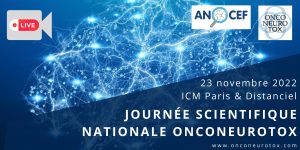Neuro-oncology
Coordinated by Pr.Marc Sanson
Brain cancers are the 1st cause of cancer death before the age of 35. Because of their rarity, their great heterogeneity and their frequent resistance to conventional treatments, they remain poorly known.
The main objectives of this programme are to :
- Better understand functional genomics and the role of the tumor microenvironment
- Improving diagnosis through innovative and/or non-invasive approaches
- To develop personalized therapies and improve the quality of life of patients.

Synthesis for the general public and news

📚 Publication: « Molecular and clinical diversity in primary central nervous system lymphoma »
Primary cerebral lymphoma: a new classification of the disease aimed at improving the lives of patients HERNANDEZ Isaïas, doctoral student; […]
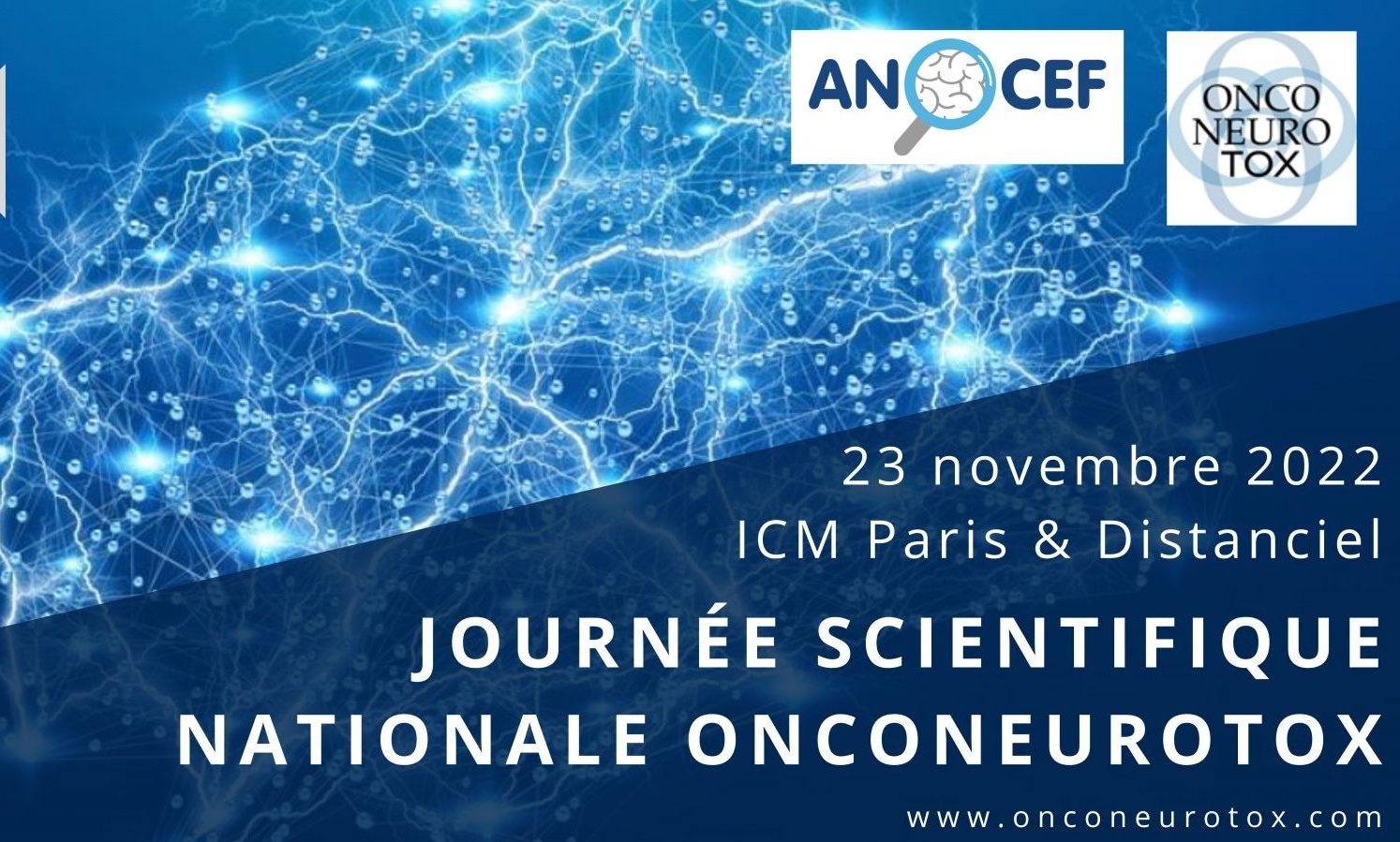
📌 3rd national OncoNeuroTox scientific day
With the support of SiRIC CURAMUS, the OncoNeuroTox network, dedicated to the management of neurological consequences of anti-cancer treatments, organizes […]
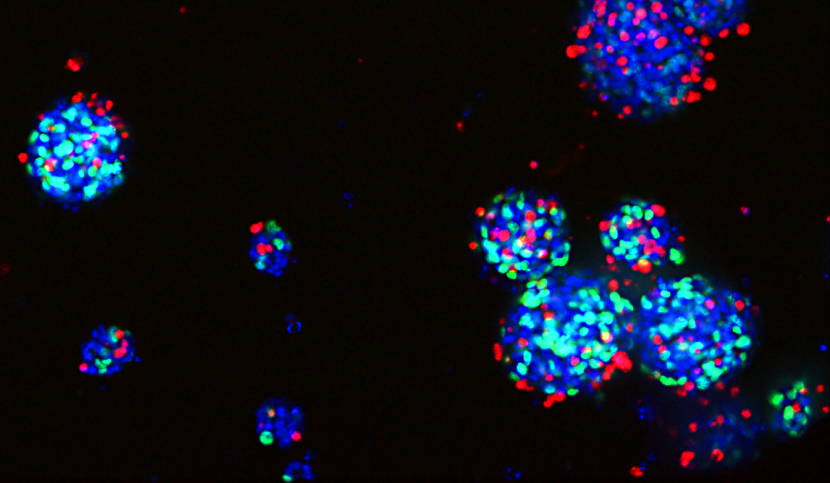
Genetics and mechanisms involved in resistance to brain tumor treatments
Genetics and mechanisms involved in resistance to brain tumor treatments In an article to be published in the prestigious journal […]
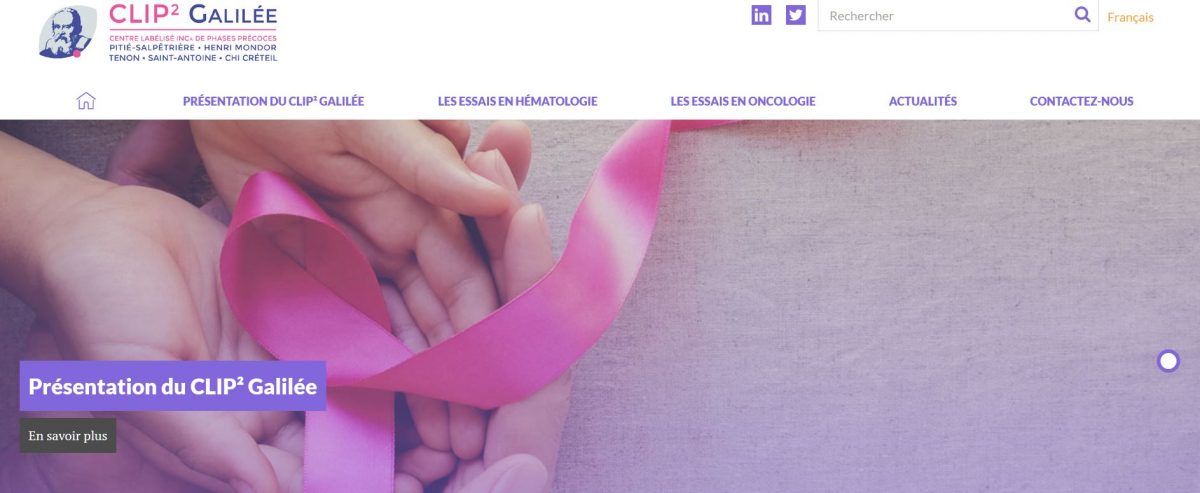
CLIP2 Galilée website
Launch of the new CLIP² Galilé website The CLIP² Galilée (INCa Labeled Early Stage Centre), first labeled by the National […]
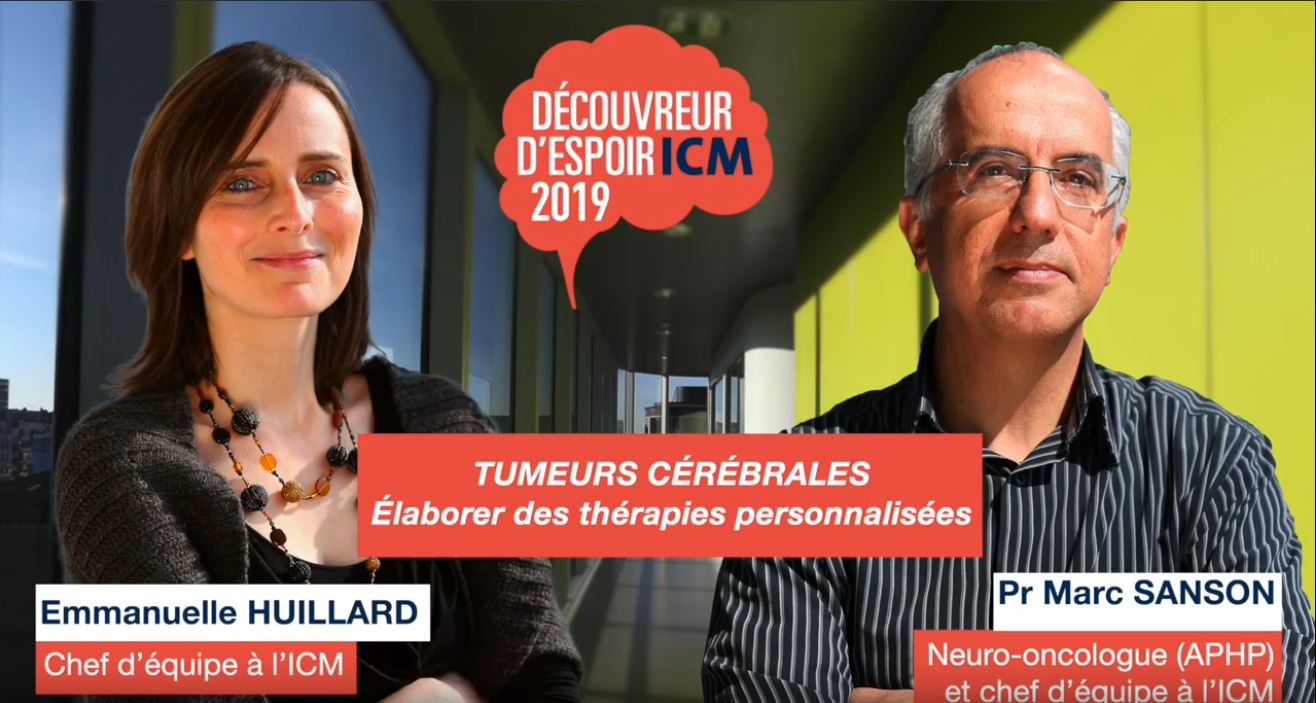
Brain Tumours: Developing Individualized Therapies
Brain Tumours: Developing Individualized Therapies
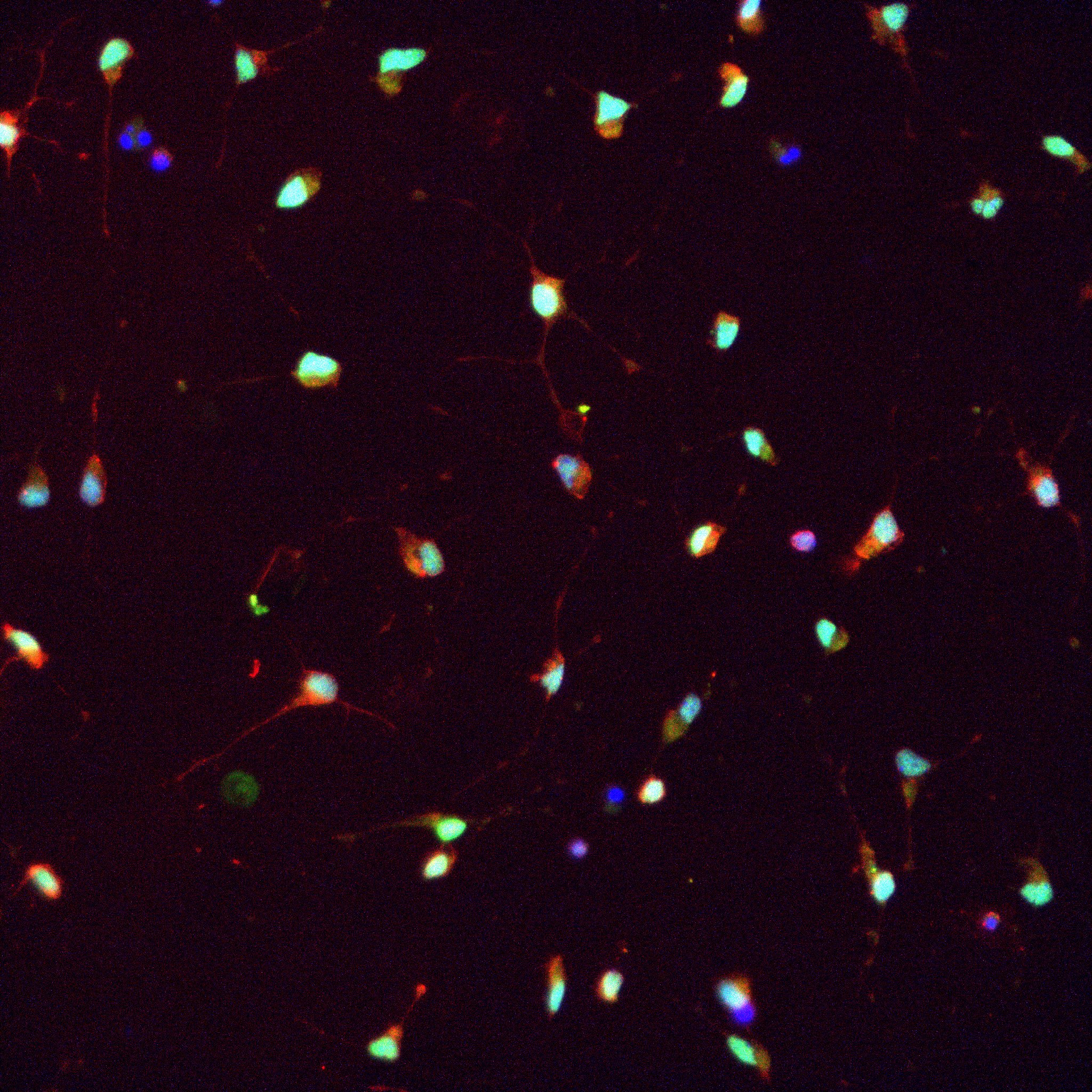
Functional consequences of HDI1 and CIC mutations on the cells of origin of oligodendrogliomas
Functional consequences of HDI1 and CIC mutations on the cells of origin of oligodendrogliomas Oligodendrogliomas are primary tumours of the […]
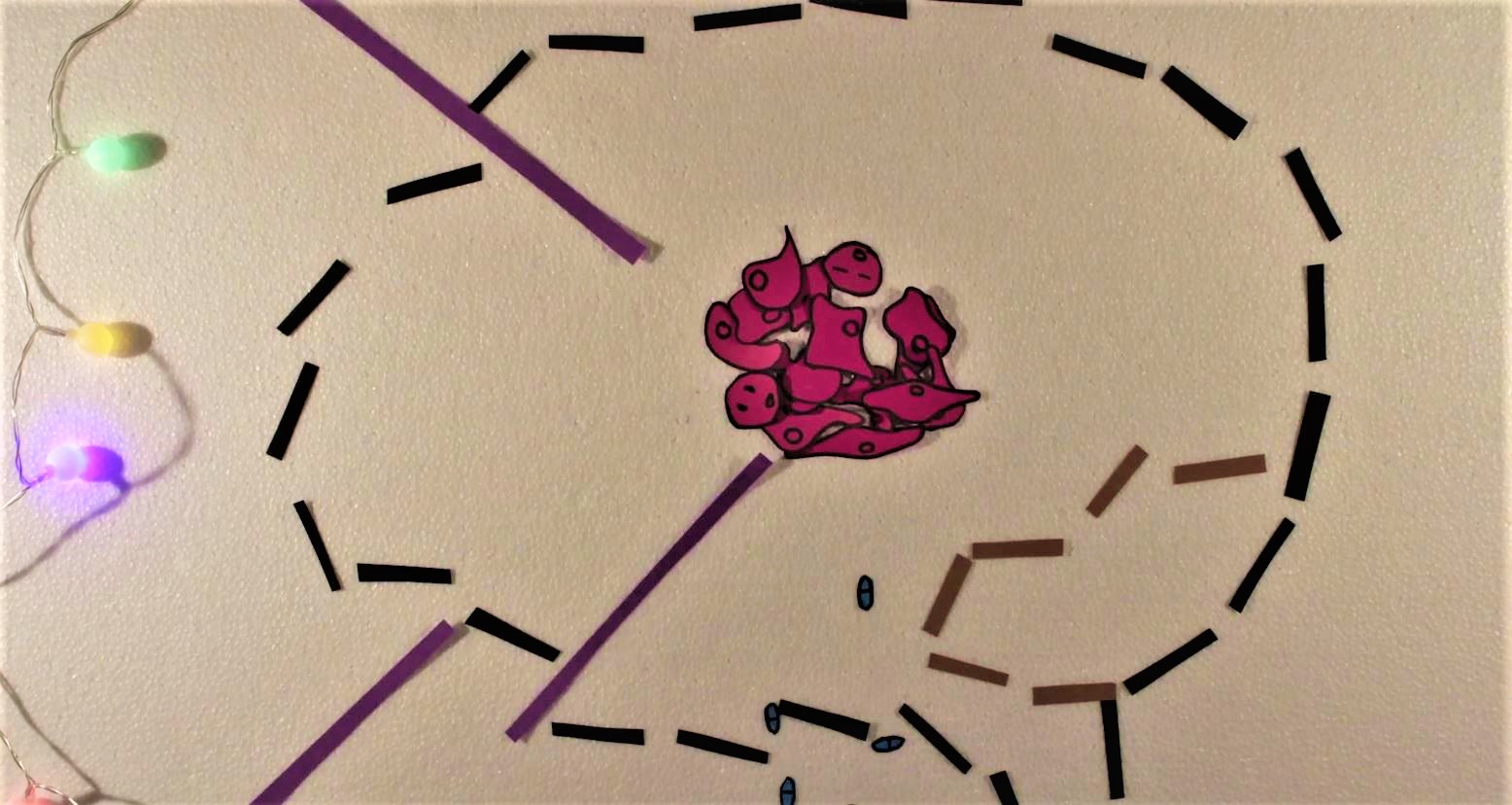
A glioma to kill
“A glioma to kill “ Short film by Nathalie Magne, post-PhD of the Sanson-Huillard’s team who, on the occasion of […]
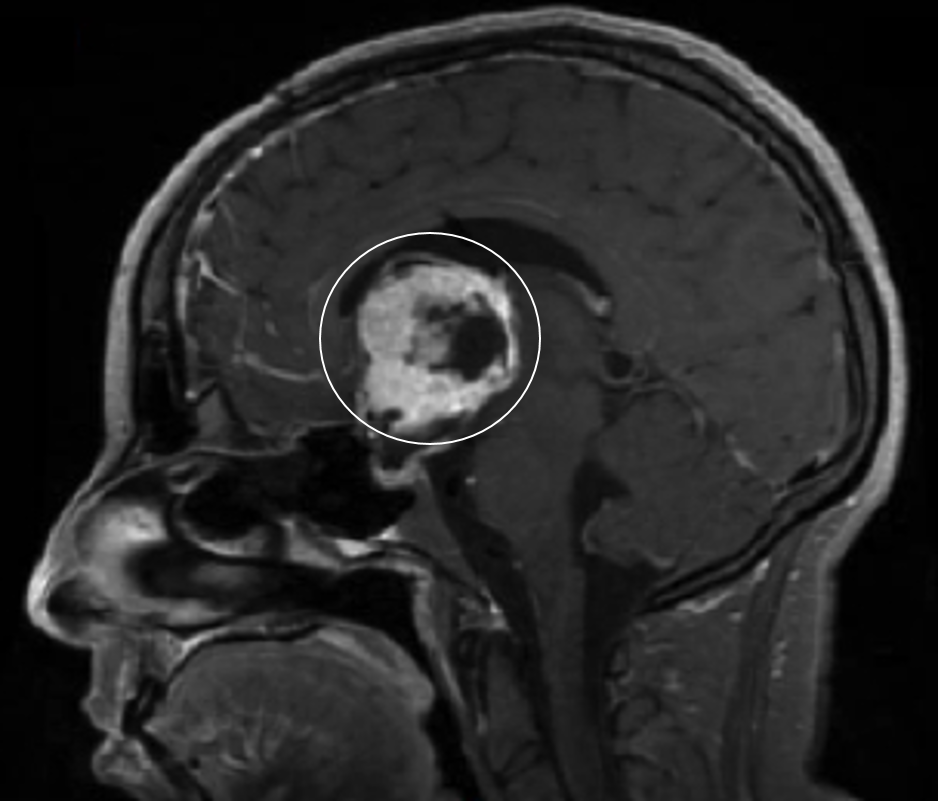
Chordoid glioma: a subtype of brain tumour still poorly understood
Chordoid glioma: a subtype of brain tumour still poorly understood Chordoid gliomas are rare brain tumours, resulting from the excessive […]
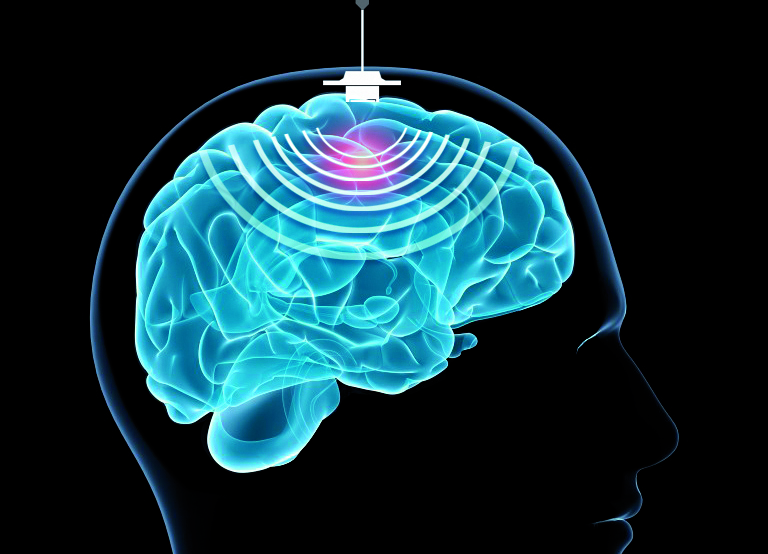
SonoCloud First Project
The SonoCloud First project, led by Prof. Alexandre Carpentier, head of the neurosurgery department at Pitié-Salpêtrière and coordinator of the […]
Publications
Original articles
2022
- Single cell spatial analysis reveals the topology of immunomodulatory purinergic signaling in glioblastoma. Coy et al. Nat Commun. 2022 Aug.
- Immune Microenvironment and Lineage Tracing Help to Decipher Rosette-Forming Glioneuronal Tumors: A Multi-Omics Analysis. Lerond et al. J Neuropathol Exp Neurol. 2022 Aug
- Identification of growth hormone receptor as a relevant target for precision medicine in low-EGFR expressing glioblastoma. Verreault et al. Clin Transl Med. 2022 Jul
- CAR T-cell therapy in primary central nervous system lymphoma: the clinical experience of the French LOC network. Alcantara et al. Blood. 2022 Feb
2021
- Somatic PIK3CA Mutations in Sporadic Cerebral Cavernous Malformations. Peyre et al. N Engl J Med. 2021 Sep.
- GAB1 overexpression identifies hedgehog-activated anterior skull base meningiomas. Boetto et al. Neuropathol Appl Neurobiol. 2021 Oct
2020
- Mechanisms and therapeutic implications of hypermutation in gliomas. Touat et al. Nature. 2020 Apr.
- TARGET study group. Clinical, molecular, and radiomic profile of gliomas with FGFR3-TACC3 fusions. Di Stefano et al. Neuro Oncol. 2020 Nov
2019
- LOC Network. A genome-wide association study identifies susceptibility loci for primary central nervous system lymphoma at 6p25.3 and 3p22.1: a LOC Network study. Labreche et al. Neuro Oncol. 2019 Aug
- Safety and Feasibility of Repeated and Transient Blood-Brain Barrier Disruption by Pulsed Ultrasound in Patients with Recurrent Glioblastoma. Idbaih et al. Clin Cancer Res. 2019 Jul.
- Radiotherapy or Autologous Stem-Cell Transplantation for Primary CNS Lymphoma in Patients 60 Years of Age and Younger: Results of the Intergroup ANOCEF-GOELAMS Randomized Phase II PRECIS Study. Houillier et al. J Clin Oncol. 2019 Apr.
- The molecular landscape of glioma in patients with Neurofibromatosis 1. D‘Angelo et al. Nat Med. 2019 Jan.
2018
- Bevacizumab and temozolomide in patients with first recurrence of WHO grade II and III glioma, without 1p/19q co-deletion (TAVAREC): a randomised controlled phase 2 EORTC trial. Van den Bent et al. Lancet Oncol 2018 Sep.
- A recurrent point mutation in PRKCA is a hallmark of chordoid gliomas. Rosenberg et al. Nat Commun. 2018 Jun.
- FGFR1 actionable mutations, molecular specificities, and outcome of adult midline gliomas. Picca et al. Neurology 2018 Jun.
- Highly specific determination of IDH status using edited in vivo magnetic resonance spectroscopy. Branzoli et al. Neuro-oncology 2018 Jun.
- A metabolic function of FGFR3-TACC3 gene fusions in cancer. Frattini et al. Nature 2018 Jan.
Reviews
- European Association of Neuro-Oncology (EANO) Guidelines for Treatment of Primary Central Nervous System lymphoma (PCNSL). Hoang-Xuan et al. Neuro Oncol. 2022 Aug.
Events
3rd national OncoNeuroTox scientific day
23 november 2022With the support of SiRIC CURAMUS, the OncoNeuroTox network, dedicated to the management of neurological consequences of anti-cancer treatments, organizes its 3rd national scientific day on wednesday 23 november 2022 in Paris. The interventions will discuss neurotoxicities of conventional, targeted and immunotherapies treatments.

